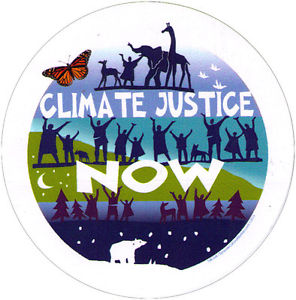Often categorized as an environmental issue, climate change in reality is as much of a social, political and economic issue as it is environmental. It has the ability to engulf the communities everywhere on the planet, especial those belonging to the vulnerable sections particularly in the developing countries. This calls for a climate justice which entails a narrative of the people, for the people and by the people. Climate justice is very much fundamental for sustainable development of the world as such which is free of food security, water availability, public health, housing and overall healthy and holistic well-being among others. Several countries like India, China, Chile and other Asian, African and Latin American countries have taken a strong stand in this regards, given they house the largest percentage of population vulnerable to climate change. Notably, the concept itself is not well balanced, with the impact of climate change unevenly distributed. The poor, women, children and indigenous people face these lopsided risks; and with no safety nets, one drought or flood means further hardship.
Climate Justice brings forth another dichotomy wherein the burden of climate change has often been weighted off to the developing nations, thereby ignoring many rich nations— who once indulged in harmful environment practices. As such climate justice is ignored by the developed and rich nations. It has been recognized historically:
- “Industrialized nations have emitted far more greenhouse gas emissions than developing nations (even if some developing nations are only now increasing theirs) enabling a cheaper path to industrialization;
- Rich countries therefore face the biggest responsibility and burden for action to address climate change; and
- Rich countries therefore must support developing nations adapt to avoid the polluting (i.e. easier and cheaper) path to development—through financing and technology transfer, for example.”
At the heart of climate justice then lies the urgent need to prevent climate change through community-led solutions, and not neo-liberal corporate approach, which takes care of the needs of not just rich and privileged but also the local communities, Indigenous Peoples and the global poor, as well as biodiversity and entire ecosystems.

